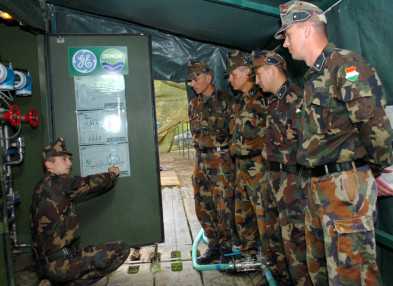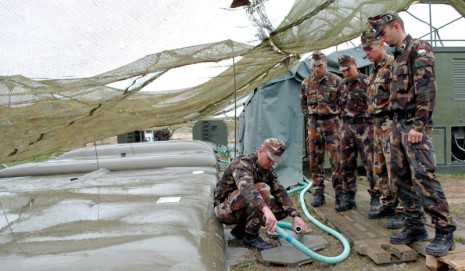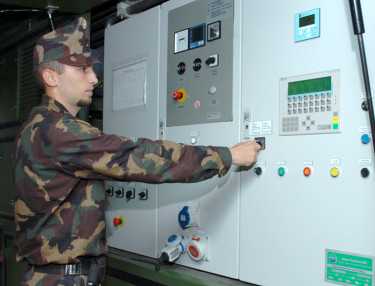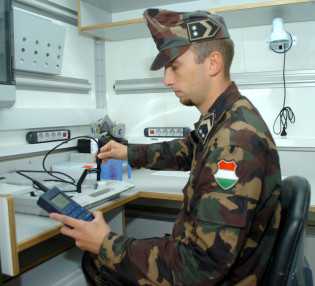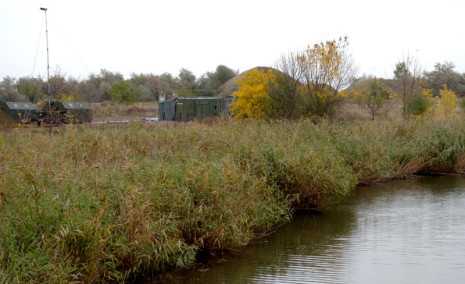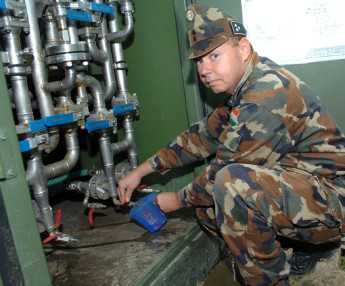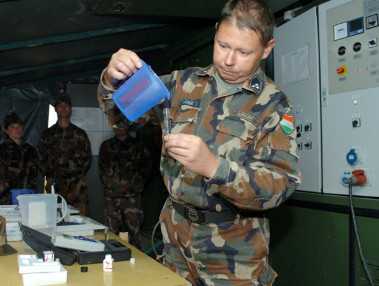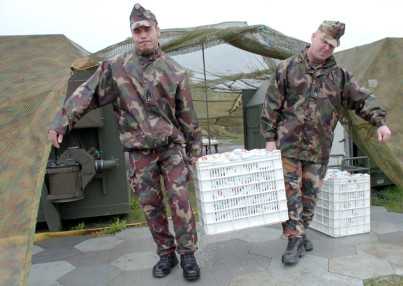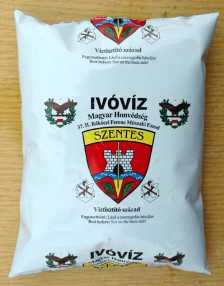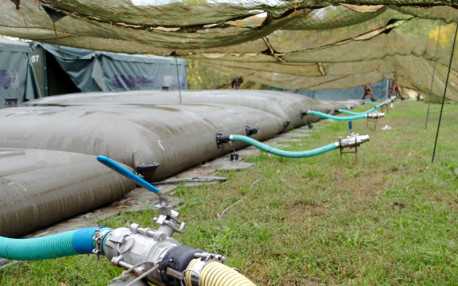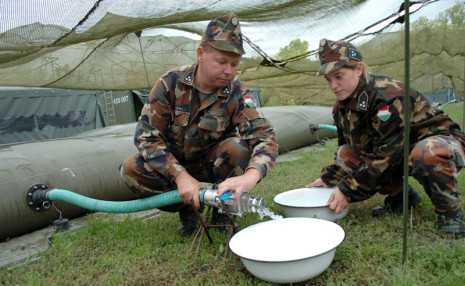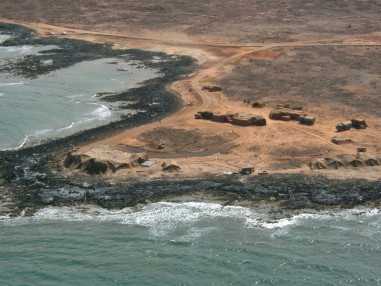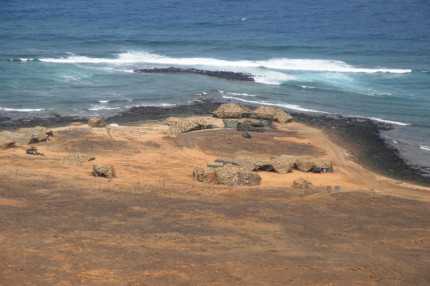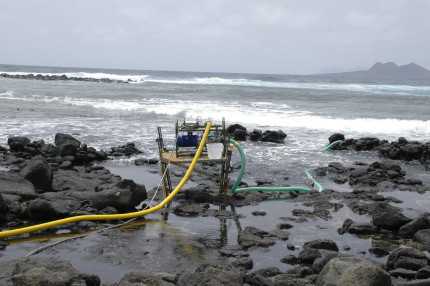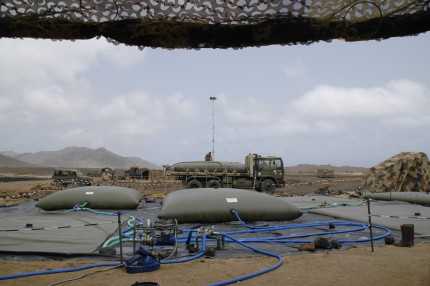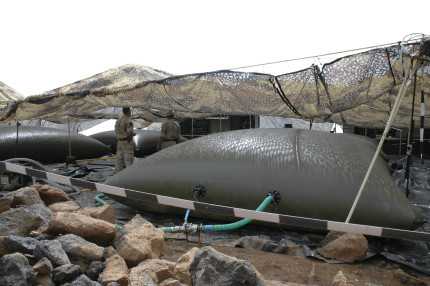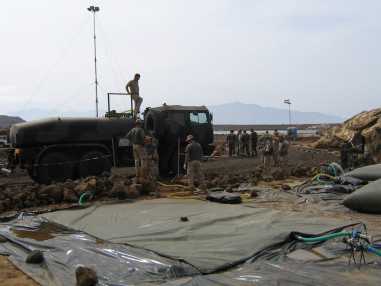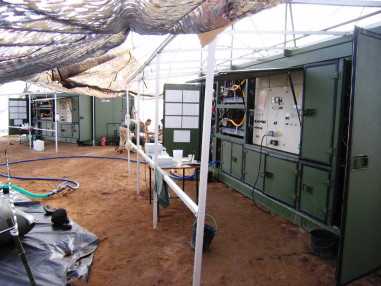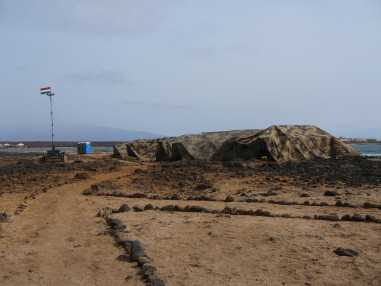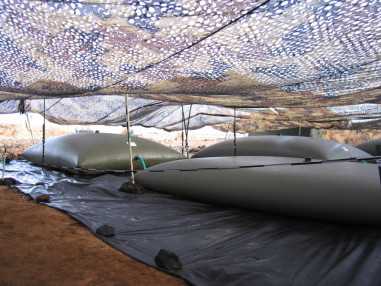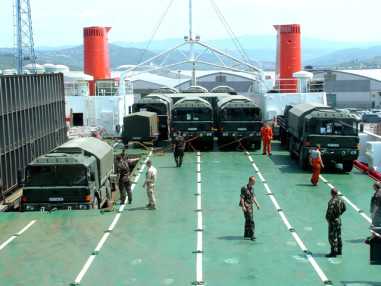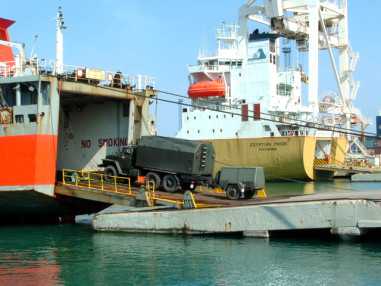Purifying and Packaging
Szöveg: Sándor Galambos | 2012. október 23. 14:57Conducted on the bank of the stream Kurca, the skills maintenance trade training for the water purification company of the HDF 37th Ferenc Rákóczi II Engineer Regiment of Szentes is in its third week. The unit is going to start the special tactical sessions in a couple of days because, being the only company of the Hungarian Defence Forces with this capability, it is preparing for the national CREVAL procedure which is due next month.
Galéria
Capt. Zoltán Fodor, the commander of the company told us that by using physical methods based on filters, they purify the so-called raw water, which is extracted from rivers, lakes and possibly from seas. With this technology, they produce completely desalinated water. This so-called industrial water is excellently suitable to fill up machines, batteries, cooling systems and also to wash and chemically decontaminate vehicles, but is undrinkable. To make it suitable for human consumption, the amount of dissolved salt which has been removed must be added back by re-mineralization, to the extent specified by the standards.
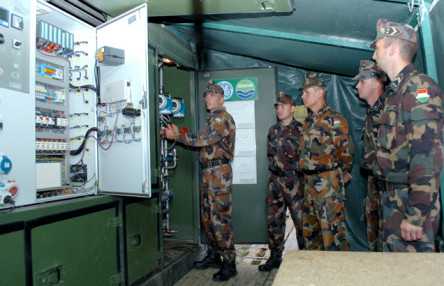
We still have a lot to do to protect the surface waters of Hungary, but their present condition does not present any significant challenges to the water purification company. Its personnel can filter out all types of pollution, including the consequences of industrial disasters and potential nuclear explosions. Six years ago, they participated in a NATO exercise where they proved that they are capable of purifying seawater as well: a platoon of theirs was tasked with managing the water supply of a brigade. The NATO exercise in 2006 was the first time that the soldiers of Szentes had the mission of purifying seawater. Capt. Kondor revealed that in Cape Verde they encountered an unexpected obstacle, one that had not even occurred to them during the training in Hungary. The bay from which they were to extract water was teeming with sharks. Actually, it was called Shark Bay, but their maps showed it under its Portuguese name, and no members of the platoon spoke that language. They noticed the marine predators around themselves first when they were laying the first foot valves on the seabed. It is understandable that from that point on, it was the repair of the valves that presented the water purification personnel with the biggest challenge.
Here at home, the company usually conducts field exercises on marshlands where they do not come under sharp attacks, but the rivers in Hungary do hold a lot of surprise in store. The list of the things they have already found on the riverbeds and streambeds is endless, ranging from fishing lines and rods to rubber boots, dishes, teapots, and even a bicycle in relatively good condition. These underwater objects cause only annoyance to the soldiers of Szentes because they focus on materials that are invisible to the naked eye, for example various metal salts such as sodium, calcium and magnesium. After filtering these out, they obtain chemically pure water which is undrinkable and has an astonishing physical property, which is that it is a non-conductor. The reason is that it lacks the free ions that are necessary for any material to conduct electricity.
Water like this is a better insulator than rubber boots, they say.
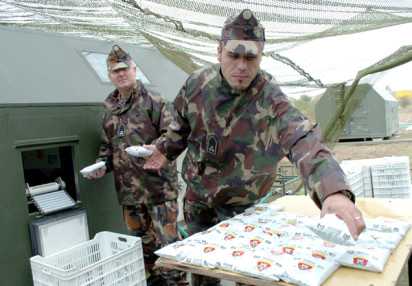
Photos by the author and the unit
